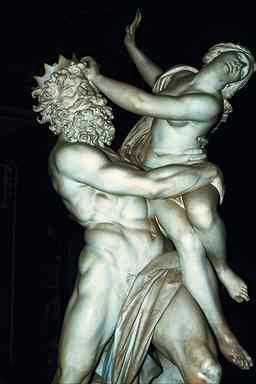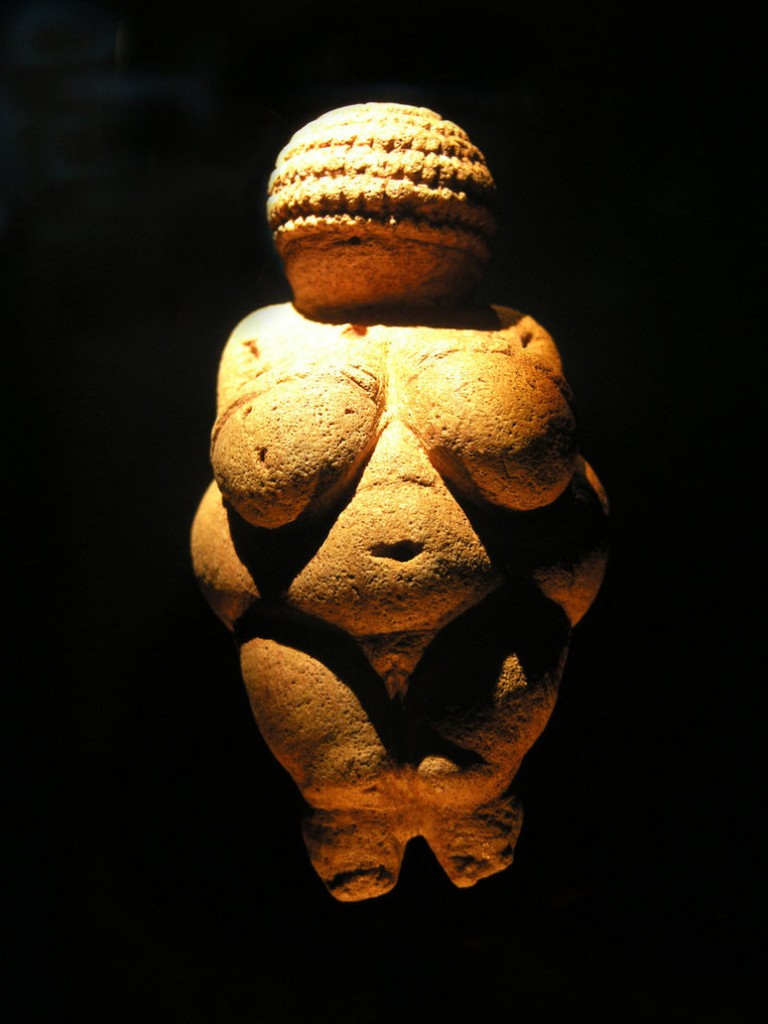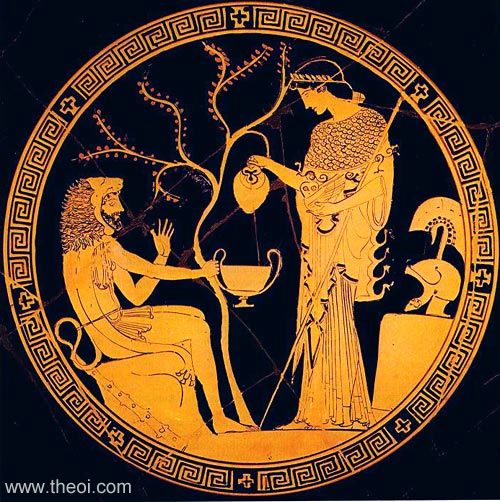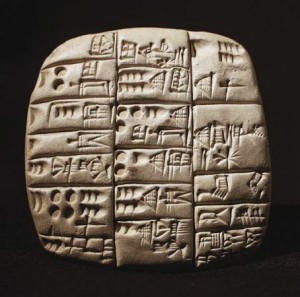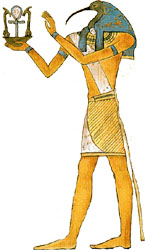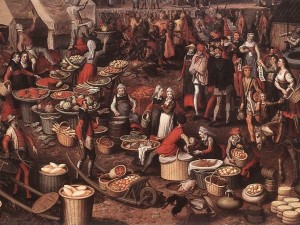Q: What role did love and romance (if any) have in marriage in ancient greece?
Marriage was considered a legal contract where property, titles, and usually a dowery traded hands between families. Technically, love had very little to do with the transaction. However, love is a basic human need. Our ancestors certainly did seek affection and it played a HUGE role in their lives. So much, that they put it down in poetry, song, and artwork.
The Greeks even identified four types of love:
Storge: Or familial love, the love felt for family and kinship.
Philia: Friendship. This was so important to the Greeks, it had its own word and set of rules.
Eros: Romance and Desire. Also so important, the Greeks personified this emotion as a child of Aphrodite.
Agape: Divine Love. The ultimate expression of unconditional love. A denial of self. The highest form of love you can aspire towards.
Plato, in his work “The Symposium”, discusses in detail the concept of love and soul mates. I highly recommend it for further reading. He has persuasive arguments for the true love felt between hetero and homo sexuals.
Q: What legal rights did women have (if any) in the Bronze Age?
In Greece, sadly, not much. Women were considered property, the oikos under the guardianship of their kyrios: their fathers at first, then transferred to their husbands. They were barred from conducting legal transactions, unless their kyrios did it for them. They could own property, but only if specifically gifted to them, which allowed them to bequeath those objects thereafter. Aside from religious positions, they could not hold office or rule outright.
Thucydides, in “The Speeches of Pericles” in 431 BCE:
“I should also speak of womanly virtues thinking of those who henceforth will be widows. I will sum up all in a brief admonition. Not to fall below the standard that nature has set for you will be your greatest glory, and great, also, is that of a woman who is least talked about among men, be it in praise or in blame.”
Yeah, it was better to not be seen nor heard. In CONTRAST – take a look at life in the Old World.
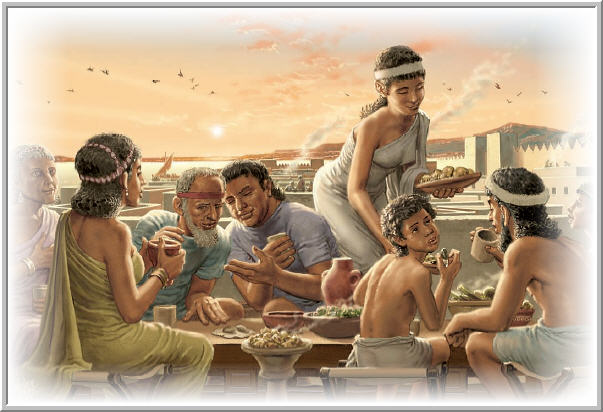 Both Egyptian and Mosaic (Hebrew) law, women could own and inherit property, including land, livestock, slaves and servants. She could bequeath her property to anyone she wanted, and in the case of divorce (not known in Greece), keep her possessions, including her dowry. Women were involved in various trades and crafts. In the Hebrew nations, they were forbidden from religious and leadership roles, but not in Egypt.
Both Egyptian and Mosaic (Hebrew) law, women could own and inherit property, including land, livestock, slaves and servants. She could bequeath her property to anyone she wanted, and in the case of divorce (not known in Greece), keep her possessions, including her dowry. Women were involved in various trades and crafts. In the Hebrew nations, they were forbidden from religious and leadership roles, but not in Egypt.
In the professional world, they were present, but definitely in the minority. You wouldn’t be wrong if you said they faced sexism in the Old Empires instead of outright disenfranchisement.
Side note – on adultery and divorce. Only married women and their lovers committed adultery. If a married man dallied with an unmarried man/woman, it wasn’t socially wrong. On divorce—a man could divorce a woman for almost any reason, childlessness usually the biggest cause, but it was virtually impossible for a woman to annul her vows.
Except in Egypt for some reason…
Why? I can only guess. The older empires had been around longer, while Greece was newly formed. Greece was a patriarchal society pushing into territory that was controlled by “barbarians” who tended to worship mother earth goddesses (See the Venus of Willendorf). Perhaps they had some strong feelings about women in power?
Q: What is mythology? How does it differ from legends and made up stories?
Ah, the age old question. There is always a kernel of truth found within any myth or legend. Events or social morals that are important to a particular culture take on the form of these tales. The Bible is full of parables.
What makes Greek Mythology so interesting is how flexible the tales are. One ‘story’ can be found with many different endings, and characters with different attitudes and traits. It all depends on the teller. Helen, in particular, is portrayed differently from Homer, to Sophocles, to Euripides.
Since Greek Myth began as an oral tradition, each bard would put their own spin on a tale. The twists of the plot would reflect the cultural issues of that particular moment in time – like how we have movies that seem similar dealing with current social concerns.
It’s important to note these myths have been great sources for historians and archaeologists to grasp the way of life in ancient times. They may not be 100% factual, but—as Captain Barbosa says—”It’s more like guidelines.”
Q: Are all ancient folks white and talk with british accents?
Despite popular belief, the people of the ancient near east and mediterranean were pretty dark. Skin color is determined by two factors, pigment and tanning. The more pigment, the darker your skin, and the better you flesh deals with intense sunshine. Thus, in places like Africa and the Mediterranean, humans adapted to have darker skin. And if you spent a lot of time outdoors, like they did in the ancient world, you got pretty tanned.
Also, as homo sapiens migrated north to places that didn’t have year-round sunshine, we started to lose our pigmentation. Sure, if you spent enough time in the sun, you still get tanned and “dark”, but your base skin state would be paler.
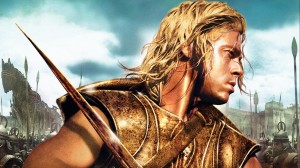 ⬅ So this is technically inaccurate, but it sure does look good (Pitt looks like a buff northerner, not a Greek demigod). As for the british accents, that’s because, as Americans, anything that sounds british seems old to us. Hollywood figured that out a long time ago. A greek accent would just feel foreign and strange to us, however appropriate.
⬅ So this is technically inaccurate, but it sure does look good (Pitt looks like a buff northerner, not a Greek demigod). As for the british accents, that’s because, as Americans, anything that sounds british seems old to us. Hollywood figured that out a long time ago. A greek accent would just feel foreign and strange to us, however appropriate.
In Anthropology 101 you learn there is no such thing as race. It doesn’t exist. It’s a common term to try to describe adaptations pockets of civilizations have developed for their unique environments. In fact, the term Caucasian comes from a region in northern Iran/southern Russia that was under the power of the Persian Empire in ancient times. Hardly white, as common vernacular would place the world.
And yes, contrary to popular debate, Jesus was brown. And Jewish.
Q: How did people communicate back then with out the inter-web? Did they really use crows?
The study of linguistics is fascinating…and one of the most difficult careers I can think of. Messengers, of various different spoken languages, would travel in person with both spoken communications and those written down. Writing began somewhere between Sumer and Egypt (let the historians fight that one out), and the first examples were non-alphabetical and looked like this:
It’s called cuneiform, and it was used mainly for administrative reasons (tracking commerce) and religious purpose, like keeping track of seasonal ceremonies. As a form of communication, it was used for official documents and personal correspondences between kingdoms. They used clay tablets and pressed their stylus into wedge-shaped forms. They also used leather skins for documentation, but due to its easy-to-decompose nature, it’s hard to find examples in the archaeological record.
In Egypt, hieroglyphic writing had magical or supernatural associations, and the people who could read and write were a special class of citizen. In Mesopotamia, writers—most likely a male profession—underwent intense training before they could call themselves dubsar (Scribe).
Whichever way you look at it – writing was preserved for the elite, and it was used by those in power to:
1. Justify their rule.
2. Increase their wealth.
Preserving cultural memory (a.k.a. history), didn’t really develop until Herodotus in 600 BCE.
For more information on this fascinating topic, check out this website: Ancient Scripts
As for crows, or pigeons, or any other bird-delivery device; they were devilishly tricky to train, and even harder to prove when the practice started. Since early writing was on heavy tablets, my bet is on the human mailman.
Q: What was the daily life of a common person like in the Late Bronze Age?
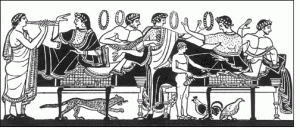 It’s easy to imagine our ancestors hanging around the great table, drinking wine, and devising plots to overthrow their kings and queens. It’s far harder to imagine what the daily life of an average person might be. When I was studying Classics back at Berkeley, I was surprised to realize how advanced the common person’s life truly was.
It’s easy to imagine our ancestors hanging around the great table, drinking wine, and devising plots to overthrow their kings and queens. It’s far harder to imagine what the daily life of an average person might be. When I was studying Classics back at Berkeley, I was surprised to realize how advanced the common person’s life truly was.
Once a civilization gets past a basic level of survival needs, society breaks into specialized trades. A person can focus on one skill set or talent, instead of spending all their time hunting and gathering. In the Bronze Age, there were several different trades people employed, and they bartered with one another in a trade system that used slag metal or strait trade goods for payment. Coins weren’t minted for several hundred more years.
In Greece, common trades were working in textiles, pottery, metal, and wood working. The majority of lands lived under a “Palatial System”, meaning a strong central king who collected tribute from his subjects, and usually provided protection and some measure of subsistence security. In many ways, it was very similar to the vassal/serf system of the Middle Ages, except citizens of the ancient world had more rights.
The palaces would own large workshops where most of the elite goods were crafted. Craftsmen in the employ of the crown would work from sun up to mid-day, then they were free to work in their own shops. Certain Masters gained notoriety and would stamp their work. It was prestigious to study under such a ‘Master’.
HOWEVER – Merchants, people who would resell other people’s goods for a profit, were considered vulgar, their profession distrusted.
Slaves were an unfortunate fact of life. However, even slaves had rights in the ancient world and could own some of the fruits of their labor. This was probably because, high or low, anybody could—and sometimes did—become a slave. Slaves were made from warfare, and it wasn’t tradition to consider one region of people as holistically a lesser class.
This is a larger question than can be addressed in a simple post, especially when we get into superstitions, religious beliefs, and differences across kingdoms. But the idealized life on grecian urns is less likely to be a realistic portrayal of the Bronze Age citizen’s reality. It would be more like this:
Q: A Long Time Ago, or A Long, Long Time Ago? What’s the Difference?
Chronology is probably the hardest concept to grasp when studying history. The names, kingdoms, and events we learn in history books can sometimes seem distant and unrelated. To help understand, historians have separated periods of time into Ages, mostly based on the tool technology of the time:
Stone knapping was replaced with metal smithing. Bronze, a heavier yet softer material was replaced with Iron, then to Steal. It’s interesting that these epochs are related to weaponry. Warfare, and its repercussions, has shaped human history powerfully.
For fans of this series – The Trojan War takes place at the end of Late Bronze Age. There is a new technology on the horizon, and with it, a compact period of intense war that effects every major empire along the Mediterranean. A mysterious people, known by historians as the “Sea People”, devastate the region and usher in the first Dark Ages (an era of illiteracy and recession of economy and monuments). Exactly who and where these “Sea People” came from is still under debate. They simply destroyed and did not take over their conquered territory. It is an ancient enigma.
Oh, yes… this series will address that question intimately. You’ll have to read and find out.


